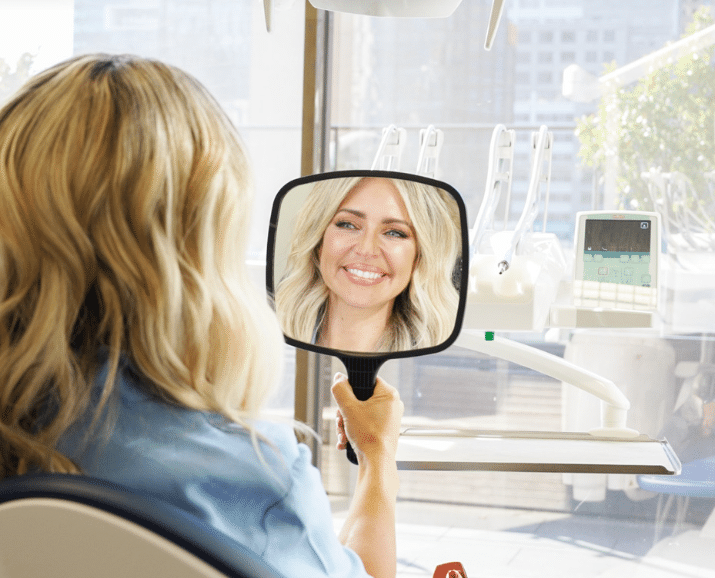Immediate teeth replacement, expertly treated by our team of registered specialists.
Smile Solutions is proud to offer our patients a full range of dental implant solutions for permanent tooth replacement, provided by our team of board-registered specialist prosthodontists, periodontists, oral and maxillofacial surgeons, and dual medical-qualified dental surgeons.
Dental implants is the process of replacing missing teeth (or a single tooth) that cannot be saved by conventional means and needs to be removed. Dental implants can range from single-tooth replacement to a complete upper and lower arch replacement.
Learn more about the different kinds of dental implants
Why choose Smile Solutions for your dental implants?
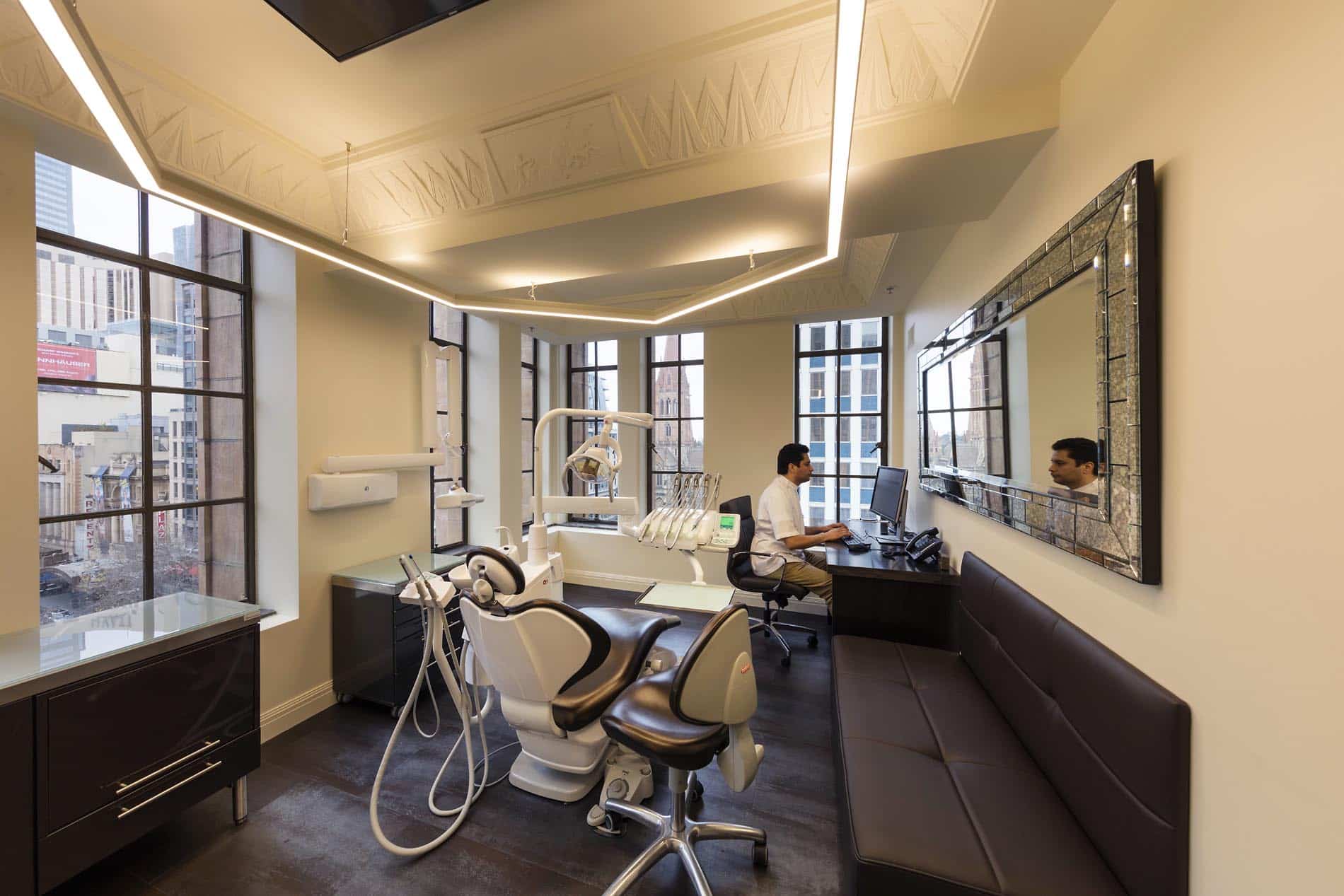
Treated by a team of board-registered specialists

At Smile Solutions your dental implant treatment will be performed by one of our team of board-registered specialist prosthodontists, periodontists, oral & maxillofacial surgeons, and dual medical qualified dental surgeons – not a general dentist providing care across multiple fields or specialists. Therefore you can rest assured you’re in the safest hands.
To qualify as a registered specialist in Australia, practitioners must first have the same degree as a general dentist. They then study for a further Masters degree or equivalent, or a PhD in a particular field, making them eligible to apply for registration with the Dental Board of Australia as a specialist.
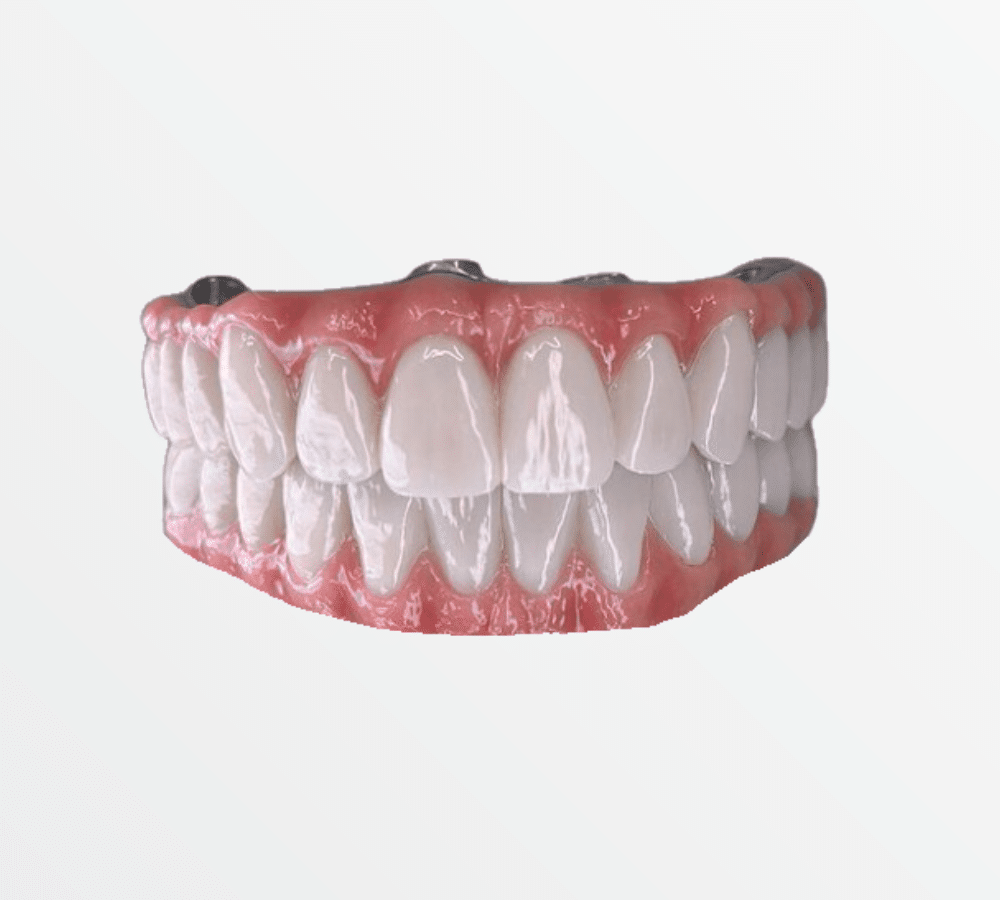
Hand crafted ceramic teeth, not acrylic denture teeth or plastic resin teeth

We principally work with ceramic material when crafting your new smile, not acrylic denture teeth or any other inferior resin (plastic) material.
Ceramic is a superior option for several reasons, including better durability to ensure a longer lifespan and resistance to wear and tear, making them more cost effective in the long run. Ceramic teeth are also highly resistant to staining, which means they maintain their brightness and colour over time with proper care.
Ceramic bridges also closely mimics the natural translucency and texture of real teeth, providing a more natural-looking smile.
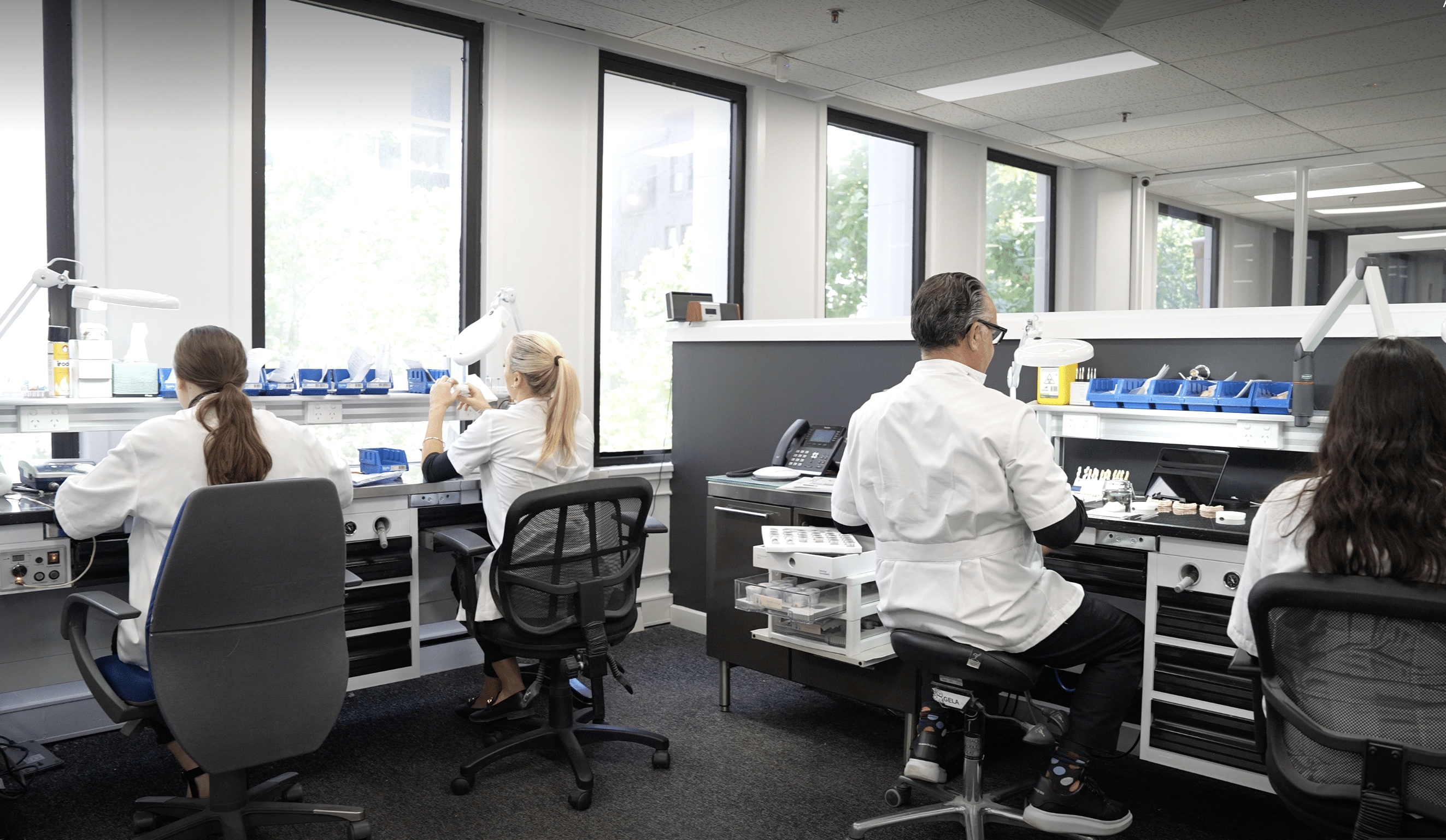
In-House Laboratory made in Melbourne

Our in-house Smile Solutions laboratory has been set up exclusively to service our own patients. Our ceramists and lab technicians do not work with any clinicians outside of Smile Solutions, allowing them to dedicate all of their time to creating the very best work for our own patients. We do not send any of our work offshore and only purchase TGA-approved products in the manufacture of our appliances.
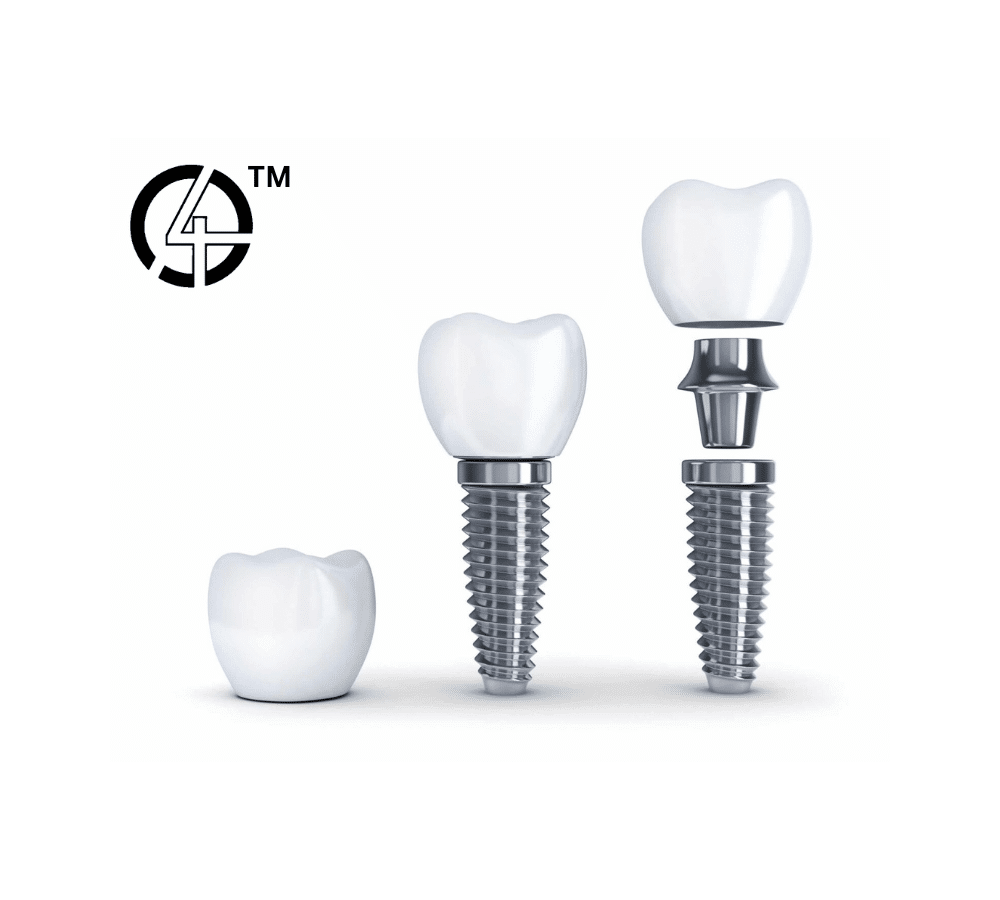
Superior Swiss-Made Implants

At Smile Solutions we are a certified All-on-4® clinic, using only premium All-on-4® registered products – no inferior alternatives. The All-on-4® system uses Swiss-made Nobel implants, advanced technology and proven techniques developed through extensive research and clinical studies ensuring reliability, predictability, and long-term success.
The brand’s commitment to ongoing innovation and continuous improvement further solidifies its reputation as a leader in implant dentistry, inspiring confidence for both clinicians and patients.
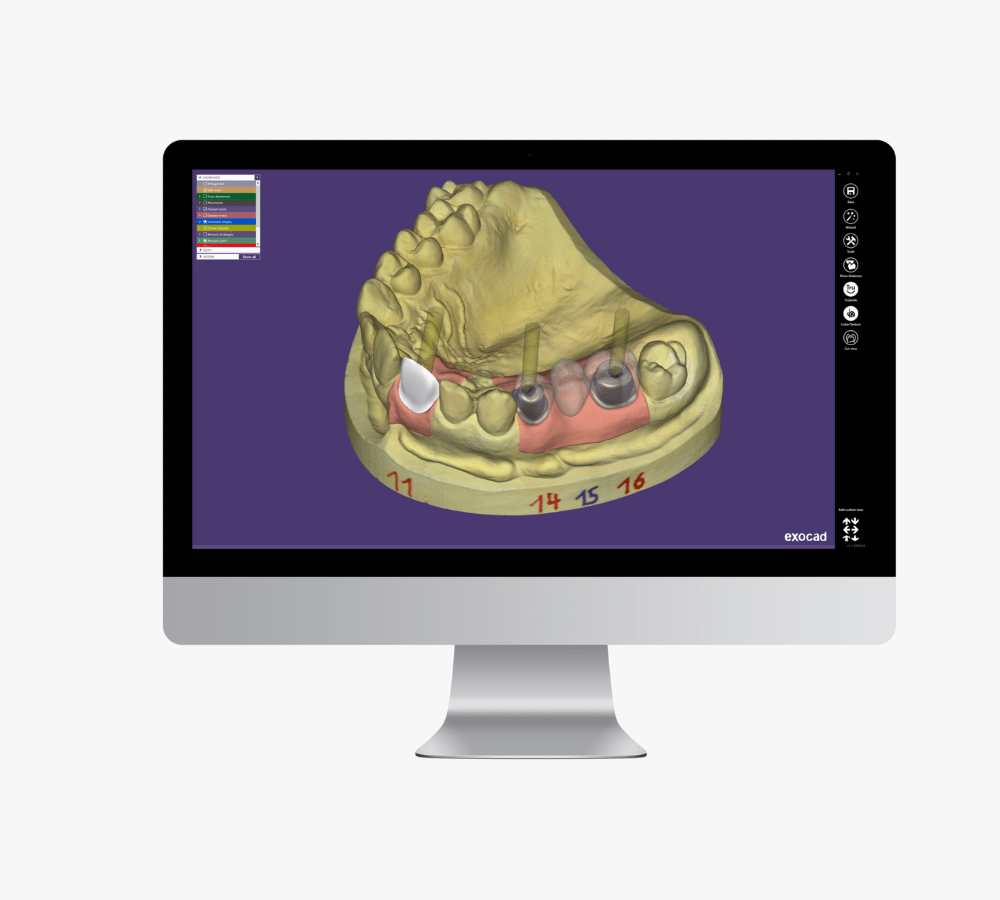
Superior technology specific to dental implants

At Smile Solutions, we continually pioneer new technologies to provide our patients with the highest level of treatment and the best results. Our superior technology specific to dental implant treatment includes:
- iCam 4D Implant and Scanner: Enhances accuracy and efficient by capturing detailed images for precise measurements and virtual implant placement simulations.
- Exocad DentalCAD Software – allows precise implant planning and visualisation for more predicable outcomes.
- coDiagnostix® Software – provides detailed 3D images of the jaw structure to ensure accurate implant placement and faster recovery times.
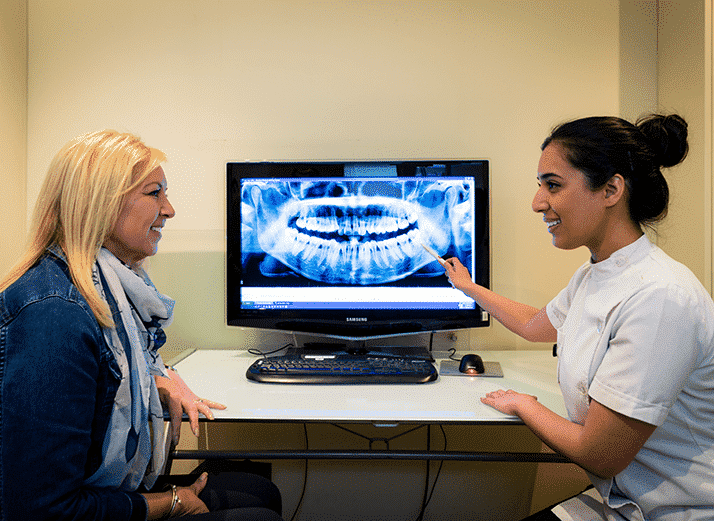
Oral Maxillofacial surgeon for complex cases

At Smile Solutions we utilise the services of oral & maxillofacial surgeons who works within our team for more complex treatment such as extensive bone grafting, sinus lifts and zygomatic implants.
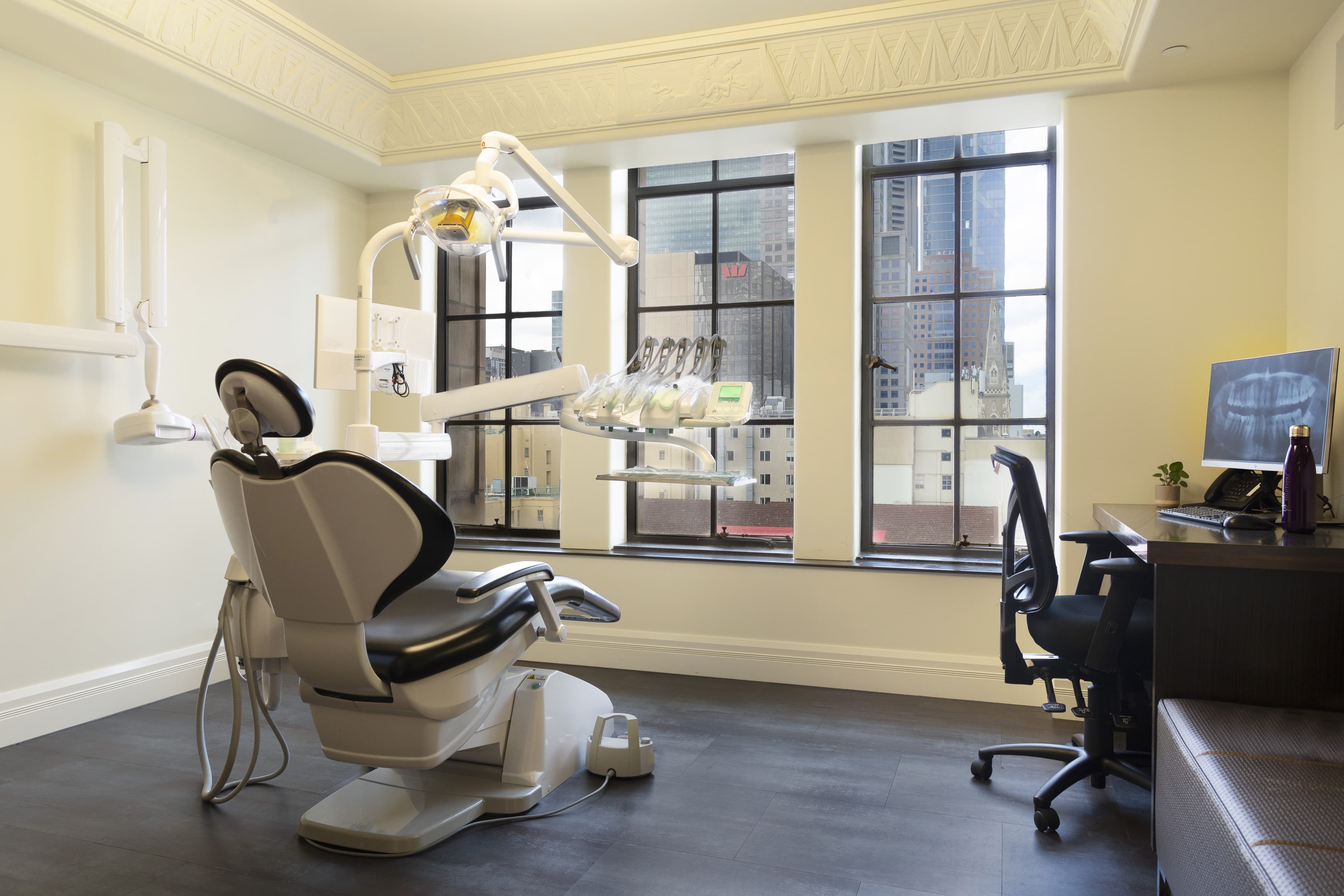
Expert advice

Your initial, complimentary appointment will be with an experienced registered dentist, not a sales person without any formal qualification in dentistry.
Is your clinician a registered specialist?

The price list is a guide only. Cost is determined by the complexity of the problem, treatment time required, material used, number of surfaces or teeth involved and a whole range of other factors. For a personalised and accurate quote, we would love to help you book an appointment with a dentist on 13 13 96.
Up to 30 months no deposit interest free payment plans available
Smile Solutions offers up to 30 months no deposit, interest free payment plans for all your general, cosmetic and specialist dental treatment.
Our payment plans allows patients to pay off their treatment in easy fortnightly instalments, with a low establishment fee and a simple application process.
Calculate your estimated repayments here
Technologically advanced practice
Smile Solutions is always pioneering new technologies and processes to provide to our patients. All our clinicians have access to the most superior technology available to ensure every patient receives the highest level of treatment and achieves the best results.
This including Dental Monitoring, iTero scanners, 3Shape Trios digital scanners, Digital Radiographs & CT scans, a fleet of CEREC machines and intraoral scanners, as well as an in-house dental laboratory equipment and bespoke ceramic studio equip with 3D printers.
Over 30 years of award winning service
Our portfolio of awards have cemented our dental practice as a pioneer and leader in Australia’s health industry across service excellence, innovation and more.

Book a complimentary cosmetic consultation
Frequently Asked Questions
Dental bridges literally “bridge” the gap created by missing teeth. They are made up of one or more crowns for the teeth adjacent to the gap, along with a false tooth or teeth attached. These anchoring teeth are called abutment teeth and the false teeth are called pontics. The latter can be made from gold, alloys, porcelain, zirconia or a combination of these materials. The result is a dentition that is fully restored in terms of function and appearance.
There are four main types of dental bridges available as a means of tooth replacement.
Conventional bridges are used when there are natural teeth present on both sides of a gap created by the missing tooth. They involve reshaping the teeth on either side of the gap to make room for cementing crowns on them, with a pontic (false tooth) in between to replace the missing tooth.
Cantilever bridgesare used when there is an adjacent tooth on only one side of the missing tooth or teeth. The pontic is supported on only one side, rather than on both sides, by one or two crowned abutments, depending on how much support is required or the length of the bridge.
Maryland bridges(resin-bonded bridges) are considered a conservative alternative to traditional bridges. These bridges consist of a single pontic that is held in place by a metal or porcelain framework (wing). This framework is bonded onto the back of the tooth adjacent to the missing tooth with composite resin cement. Your specialist will need to remove only a very small amount of tooth from the back surfaces of these teeth to make room for the wing, with minimal alteration of the adjacent tooth required.
Implant-supported bridgesare the most stable means of tooth replacement. The specialist surgically embeds tiny biocompatible implants made of titanium in a patient’s jawbone, and these secure the entire restoration. For every missing tooth one dental implant is placed. An alternative is a pontic suspended between two implant-supported crowns. Though this procedure can be more expensive, invasive and time consuming than the other treatment options, the outcome of this treatment option can last a lifetime, making it worth the investment.
Mini implants are an alternative approach that allows the placement of very small screws in areas where other implantable devices cannot be placed. These screws do not require functional attachment of the implant to the surrounding bone; they rely on mechanical retention, which makes their removal relatively simple and non-invasive. Another advantage of mini implants is that they can be loaded immediately.
Dental implants are made of titanium, as it is a biocompatible material, which is accepted by the body. It serves as a strong foundation for replacement teeth, with a high success rate and long lifespan.
Zirconia provides an alternative to titanium implants. A type of dental ceramic they have not been around for as long as titanium implants, but so far have proven to be quite durable.
The crowns attached to the implants are usually made of all ceramic or high-grade porcelain fused to precious metals such as gold.
When it comes to dental implants your specialist will discuss with you if it is the best option, usually they will try to save the tooth first but in cases where this is not possible they might recommend extraction and an implant.
Some of the main factors in determining whether you are a suitable candidate for dental implants include, having adequate bone, in terms of both quality and volume, which is assessed during an examination (though this can be solved with a bone graft), good oral hygiene and you meet the general medical requirements.
Dental implants can provide you with a functional and aesthetically pleasing alternative to missing or severely damaged teeth. Losing a tooth can have a detrimental impact on your remaining teeth, often resulting in the remaining teeth shifting to fill in the space left behind. A missing tooth can lead to speech problems, difficulty chewing or even discomfort; all of these can be resolved with the placement of an implant.
An implant is fixed directly into the body and as such is independent of the rest of the teeth, which means that if something goes wrong only the implant itself will be affected, in which case your practitioner will assess the area and attempt to resolve the issue, without any of your other teeth being affected.
Patients with many missing teeth used to have no choice other than dentures, but with the technological advancements over the years –higher quality dental tools and materials, now patients have more options when it comes to replacing teeth, and dental implants offer a long lasting solution.
The procedure of treatment involves:
- A thorough examination of your medical and dental health, assessment of bone density and the sinuses.
- The area where the tooth is missing is prepared, followed by treatment of the surrounding gums to check that they are healthy.
- The titanium screw will be placed, and the area is generally allowed to heal for approximately two to three months.
- The implant will be surgically exposed and a healing cap placed.
- Impressions taken and then sent to our in-house laboratory, which act as the blueprint for your dental crown, which is created by hand.
- Approximately two weeks later, the healing cap will be removed and replaced with your new dental crown.
Over time, your dental implant will fuse with the surrounding bone, acting much like the root of a natural tooth.
Your specialist will discuss the procedure with you beforehand so you fully understand everything involved, the decision will be made as to whether it will take place in the dental chair or in hospital. If you feel anxious about the procedure discuss it with your practitioner and they will take that into account when making their recommendation, to ensure you are as comfortable as possible.
Smile Solutions offers interest free dental payment plans to patients for all general, cosmetic and specialist treatment, so you can have the dental treatment you need now and pay it back over time.
At Smile Solutions your dental implant treatment will be performed by one of our team of board-registered specialist prosthodontists, periodontists, oral & maxillofacial surgeons, and dual medical qualified dental surgeons – not a general dentist providing care across multiple fields or specialists. Therefore you can rest assured you’re in the safest hands.
To qualify as a registered specialist in Australia, practitioners must first have the same degree as a general dentist. They then study for a further Masters degree or equivalent, or a PhD in a particular field, making them eligible to apply for registration with the Dental Board of Australia as a specialist.

